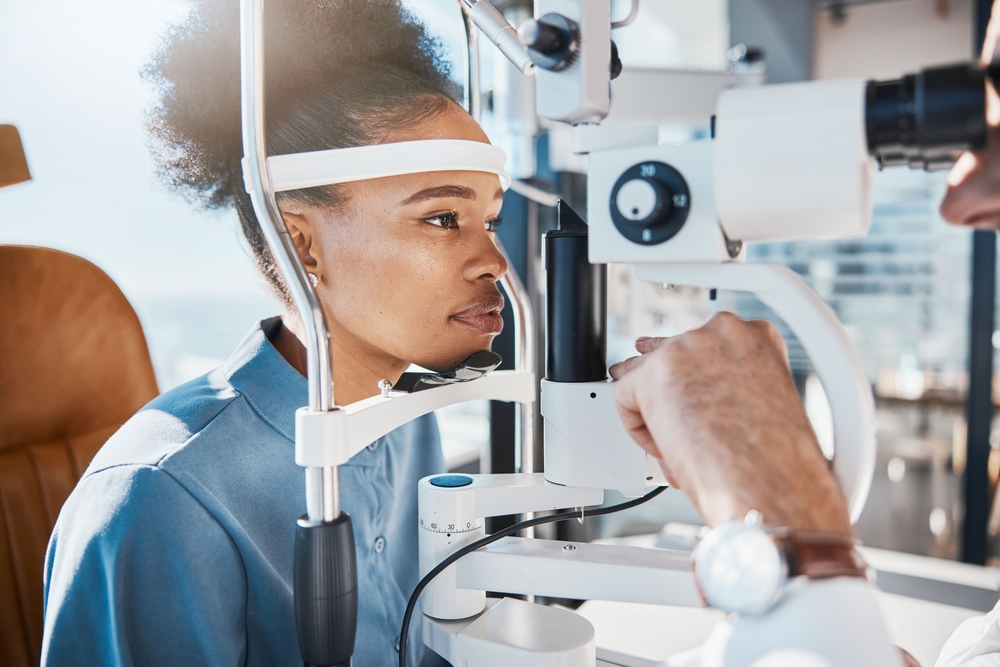Posted by: Eye Health Northwest in Eye Exams on May 28, 2024

If you have perfect vision, you might wonder why you need to visit an eye doctor. Eye doctors do more than prescribe glasses; they help you protect the health of your eyes and vision.
A comprehensive eye exam is a medical exam that includes important screenings to detect serious health conditions like macular degeneration or glaucoma. Most adults should have an eye exam every year, particularly people over forty or people with an increased risk of eye conditions.
Keep reading to learn why it’s important for you to visit the eye doctor if you have clear vision!
Do I Need An Eye Exam Every Year Even If I Don’t Have Vision Changes?
If you are under forty, don’t wear glasses, and aren’t at increased risk for any eye conditions, you may not need eye exams every year. You can ask your eye doctor how often you should have comprehensive eye exams.
If you do wear glasses or contacts, you should see your eye doctor even if you don’t think you need to change your prescription. For example, you may need to get your prescription confirmed each year before you order new contact lenses.
It’s also wise to make sure that the surface of your eyes is healthy and that it’s safe to continue wearing contacts.
Are There Any Hidden Problems An Eye Exam Could Detect?
Many serious eye diseases don’t cause symptoms right away, and an eye exam is the only way to detect them. They can develop slowly without you realizing anything has changed with your eyes.
These conditions include:
- Macular degeneration
- Diabetic retinopathy
- Glaucoma
By the time you notice vision changes from any of these conditions, it’s a signal that the problem has progressed significantly. The changes can’t be reversed.
Eye exams can detect the earliest phases of all these conditions. Your eye doctor can see the physical changes to the eye during a routine eye exam.
Once the condition has been diagnosed, you can begin treatment and prevent vision loss in the future.
Can An Eye Doctor Tell Me If I’m At Risk For Eye Disease?
An eye doctor can help you determine if you are at an increased risk of certain eye conditions. During your exam, they will ask about your health history and any family history of eye disease, such as glaucoma or cataracts.
That will give them a starting point to assess your eye health risks. After discussing your health history, your eye doctor will perform an eye exam to identify any possible eye conditions.
A dilated pupil exam allows your eye doctor to examine all the structures of the eye and identify signs of eye disease, which is the most reliable way to assess your risks.
What Happens in an Eye Exam?
Eye exams are non-invasive and don’t cause any pain. Most of the screenings involve your eye doctor using special lights and magnifying tools to look closely at the entire structure of your eye.
They will use special eye drops to temporarily dilate your pupils so they can see the interior of your eye more clearly. They will also use numbing drops before using a special instrument to test your intraocular pressure.
In addition, they will ask you to read an eye chart to check your vision and perform a refraction to determine a prescription for glasses or contacts. The entire exam usually takes less than an hour.
Many health insurance plans cover the cost of an eye exam, though you may have to pay out-of-pocket for refraction. Your insurance company can explain your coverage.
Is it time for you to come in for a comprehensive eye exam? Schedule an appointment at Eyehealth Northwest in Portland, OR, today!

